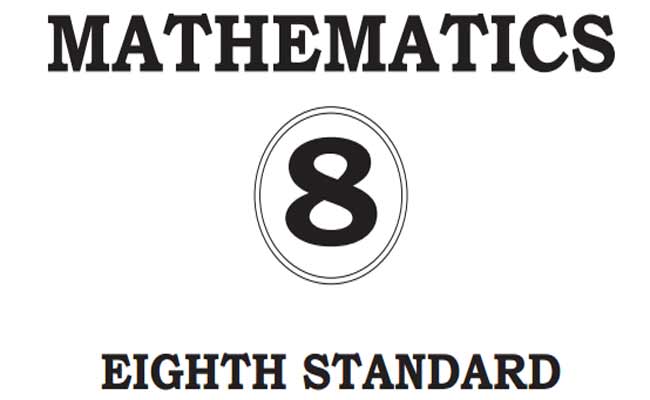
Class 10 Maths: Tips To Remember Your Formulas
November 24, 2021
Benefits Of Using R.D. Sharma Solutions For Class 11th Math’s
November 24, 2021Hello friends how are you all? Today we are going to talk about How To Make Notes For Class 8 Maths? Class 8th is an important class, which pretty much shapes the succeeding years of your schooling. The concepts taught in this standard build a foundation for what you will learn in the coming grades.
Out of the various subjects offered to students in this grade, Maths is considered the trickiest by many. Haven’t we all at some point struggled with this subject? However, the irony is that maths is also considered the most highly scoring subject. Yes, you read that right. It is one of those subjects, which when prepared thoroughly can help in enhancing your overall score.
To achieve the best results, it is important to cover the entire syllabus in the utmost detail. And like any other subject, making notes for maths is considered the best way to do that. While making notes for this subject may sound a bit overwhelming, you can make them quite effortlessly by following the right approach. As such, follow these steps to make notes for class 8 maths.
How To Make Notes For Class 8 Maths
Go Through The Syllabus Thoroughly
The first step that goes into making notes for class 8 maths includes going through the syllabus thoroughly. Before moving any further, let us first take a look at the maths NCERT syllabus. The Maths NCERT book is divided into 16 chapters. The content of this book are as follows:
- Rational Numbers Notes
- Linear Equations in One Variable Notes
- Understanding Quadrilaterals Notes
- Practical Geometry Notes
- Data Handling Notes
- Squares and Square Roots Notes
- Cubes and Cube Roots Notes
- Comparing Quantities Notes
- Algebraic Expressions and Identities Notes
- Visualising Solid Shapes Notes
- Mensuration Notes
- Exponents and Powers Notes
- Direct and Inverse Proportions Notes
- Factorisation Notes
- Introduction to Graphs Notes
- Playing With Numbers Notes
Refer To Limited Material
Ideally, the NCERT books for class 8 maths should be your only source of learning, as they are pretty comprehensive and would give you a clear understanding of all the concepts, along with plenty o practice questions. You can also refer to the study material and reference books available on the market, but make sure you do not stack up a pile of study material, as it will only leave you more puzzled.
The Three-Column Approach
When you have all the study material you require, you can move on to jotting down notes. Making notes for maths can be a bit tricky in comparison to other subjects. However, here is a tried and tested approach that will make preparing notes a breeze for you! Follow these steps:
- Divide your page into three columns.
- The first column will contain topics and other keywords for the chapter you are studying.
- The second column will be for the problem. It could be an equation or anything else based on the chapter you are on.
- The third column will be for notes. Here, you can write the method you have used or anything else that you want to remember.
This is a super-effective approach to making notes for maths, as it gives you ample space to compile all three important components in one place!
Focus More On Numbers Than On Words
Your maths notes should be based mostly on formulas, and numbers, and less on words. You can skip words, but there’s no way you can skip the important formulas, and more as ultimately only they will help you in cracking the various equations.
Do Not Write Everything
One common mistake that most students make while making notes is copying everything given in the study material. You must preview the material first, and highlight the topics, formulas, sentences, etc, that you know are important or were marked important by your teachers. Then, you can effortlessly make notes from these highlighted sections.
Keep Your Notes Crisp, Clear & Concise
The language given in books is usually quite technical for most to understand, and you might want to keep at bay from doing the same with your notes. After all, the aim is to make things simple and easily comprehensible. As such, you need to make sure that your notes are crisp, clear, and concise, as only then you will be able to grasp the concepts with ease.
Make A Rough Area
Having a rough area in your maths notes is more important than you can speculate. Not only will it help you in keeping your notes neat and more organized, but would also help you in reviewing the mistakes that you might have made in calculations each time you go through your notes.
A Summary Column
Make a summary column at the end of every page, topic, or chapter, that will give you a gist of what you have written in the notes. This will help you significantly during revision, by giving you a quick idea of what requires thorough revision, and what can be quickly glanced at.
Let Your Creative Juices Flow
While your teachers might not allow you to let your creative juices flow in your homework, you have a free hand while making notes for yourself. As such, here’s a trick that will make your notes interesting. Use colored pens, highlighters, sticky notes, etc, to make your notes more visually appealing. You can also use visual aids like a diagram, charts, bullet points, etc. Visually appealing notes will help you in coming back and reading them again!
Review Your Notes
The final, but one of the most important steps of making notes is going back and reviewing what you have written. Review your notes to make sure that everything makes sense, and rectify any errors that might be there. Also, when you’re going through your notes, make sure you recall what you have learned, and see if you have a good grasp of everything.
Maths has been, and will always be tricky, but let’s face it, there are ways to ace it. Once you have crisp and clear notes in your hand, you will be able to solve all the formulas, equations, and other problems with absolute ease.




